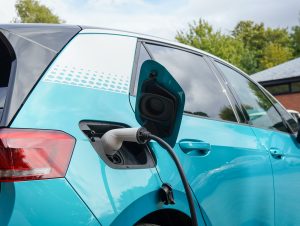Month: March 2023
Electric vehicle charging points: What you need to know

As the country moves towards the widespread use of electric vehicles, 2022 saw further growth in both sales of electric vehicles and installations of electric vehicle (EV) charging points.
The increase comes as we head ever closer to the 2030 target set by the UK Government to ban sales of new petrol and diesel cars and have 300,000 public EV charging points installed. The ultimate aim is to make EV charge points as commonplace as petrol pumps.
According to the Department for Transport section of the Government website, as of 1 January 2023 there were 37,055 publicly available electric vehicle charging devices in the UK. This is a 31% increase on the same date the previous year. Nearly half (49.4%) are in ‘destination’ locations such as retail, leisure, education and transport areas. Nearly a third (32.4%) are on-street chargers.
Statistics from the EV driver app and digital platform Zap-Map show that there were almost 740,000 battery-electric cars registered in the UK at the end of March 2023. More than 265,000 of these were registered during 2022, a growth of 40% on 2021.
While the number of public EV charging points more than tripled between 2016 and 2019, there’s still a long way to go in developing the infrastructure across the UK to reach Government targets. There needs to be an equal spread of easily accessible, affordable and secure charging points across the country to inspire consumer confidence and encourage people to switch to electric vehicles before 2030.
With Zap-Map figures locating nearly a third (31.7%) of all public chargers in London, the situation has vastly improved on 2019 figures from a study by the Competition and Markets Authority (CMA), which showed that 83 per cent of all public chargers were in London.
EV charger options
Electric vehicle charging points can be installed in the home, on-street or at the roadside, in offices and workplaces, at motorway service stations, and in supermarket or shopping centre car parks. The rule of thumb is that 10 per cent of all parking spaces should have an EV charger.
EV chargers are available in various options, depending on their use. They include wall-mounted or free-standing chargers, highly durable and damage resistant units for use in public areas, super-speed chargers, and those that are paid for or free to use.
Net zero carbon emissions
The 2030 deadline is part of a wider commitment by the UK Government to reach net zero carbon emissions by 2050 to help alleviate the climate crisis. The sale of plug-in hybrid electric vehicles (PHEVs) will be allowed in the UK until 2035. The EU will also be banning sale of new petrol, diesel and hybrid cars from 2035.
The Society of Motor Manufacturers and Traders (SMMT) claimed that 2.3 million charge points need to be introduced across the UK within the next decade to keep the country on track to a net zero economy by 2050.
Electric vehicle charging points installer
For electrical contractors such as ourselves who are certified installers of electric vehicle charging points, demand has definitely increased in this area of our work, and we are expecting it to get even busier.
We are trained and approved by the NICEIC as an electric vehicle charging point installer. We install a range of charging points from single units to complete infrastructures in commercial, domestic and public properties, with all our work conforming to the latest wiring and safety standards.
We also offer maintenance services for EV chargers, which must be regularly inspected and tested to ensure they meet all safety standards and are functioning to their optimal standard.
And it’s not just individuals who are getting in touch with us. Many organisations are keen to encourage the use of electric vehicles by their employees, and approach us to install EV charging points in the workplace either for individuals using electric cars or for the company’s own electric fleet of vehicles.
Added to that are incentives from the Government to encourage the use of electric and hybrid vehicles, with two schemes running through the Office of Low Emission Vehicles (OLEV). People who own an electric vehicle can get up to 75% of funding towards the cost of installing electric vehicle smart chargepoints at their home through the EV Chargepoint Grant. This replaced the Electric Vehicle Homecharge Scheme (EVHS) on 1 April 2022.
Businesses, charities and public sector organisations, meanwhile, could potentially save thousands of pounds by applying for funding through the Workplace Charging Scheme (WCS), which offers support towards the upfront costs of purchasing and installing EV charging points in the workplace.
Local authorities can also access grant funding through the On-street Residential Chargepoint Scheme (ORCS) for the installation of on-street EV charging points for electric vehicles in residential areas.
Here at DRF Electrical, our experts work with individuals and organisations across the UK to advise on the best solution for their electric vehicle charging requirements, as well as any grant funding or support schemes available to them. Call our team at DRF Electrical to discuss your EV charging needs on 0113 257 8212.


